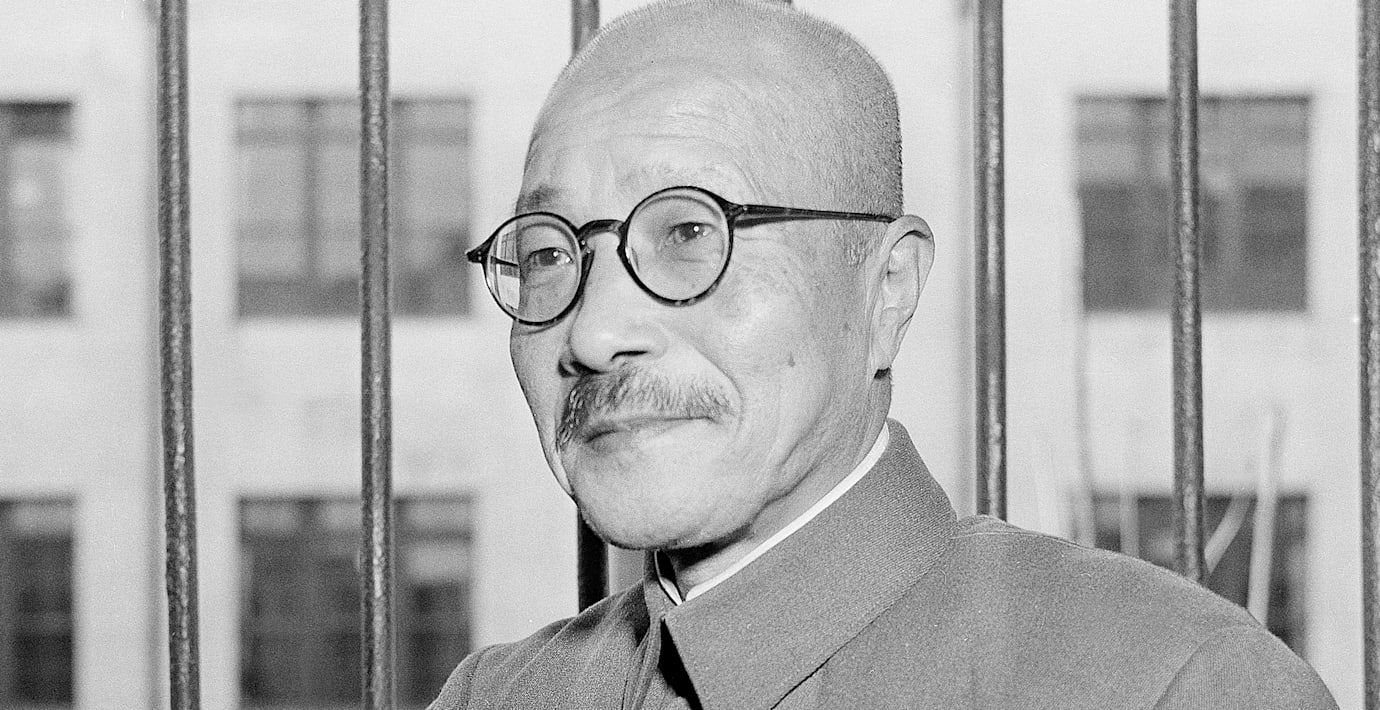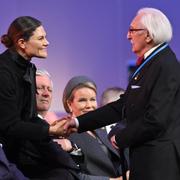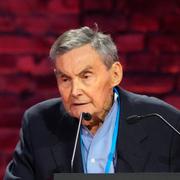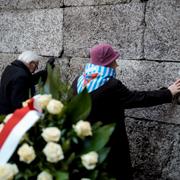Wikipedia (en)
Hideki Tōjō (December 30, 1884 – December 23, 1948) was a Japanese politician and general of the Imperial Japanese Army (IJA) who served as Prime Minister of Japan and President of the Imperial Rule Assistance Association for most of World War II. During his years in power, he assumed several more positions including Chief of Staff of the Imperial Army before ultimately being removed from office in July 1944.
Hideki Tojo was born on December 30, 1884 to a relatively low-ranking samurai family in the Kōjimachi district of Tokyo. He began his career in the Army in 1905 and steadily rose through the ranks to become a general by 1934. In March 1937, he was promoted to Chief of Staff of the Kwantung Army whereby he led military operations against the Chinese in Inner Mongolia and the Chahar-Suiyan provinces. By July 1940, he was appointed Minister of War to the Japanese government led by Prime Minister Fumimaro Konoe.
On the eve of the Second World War's expansion into Asia and the Pacific, Tojo was an outspoken advocate for preemptively attacking the United States and its European allies. Upon being named Prime Minister on October 17, 1941, he oversaw Japan's decision to go to war as well as its ensuing conquest of much of Southeast Asia and the Pacific Islands. He also presided over numerous war crimes, including the massacre and starvation of civilians and prisoners of war.
After the war's tide decisively turned against Japan, Tojo was forced to resign as Prime Minister in July 1944. Following his nation's surrender to the Allied Powers in September 1945, he was arrested, convicted by the International Military Tribunal for the Far East in the Tokyo Trials, sentenced to death, and hanged on December 23, 1948.




